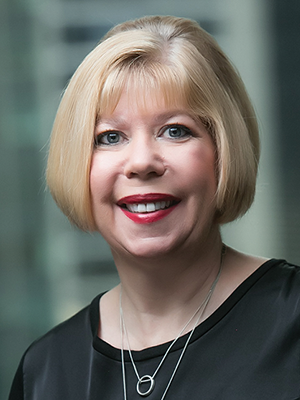
Our advocacy focuses on strengthening the STEM workforce by ensuring equal opportunity for women in both STEM education and careers.
The Society of Women Engineers has taken an active role in STEM advocacy for more than 15 years, yet the foundations for these efforts were established in the earliest days of the organization and in the words of our mission statement.
Our advocacy focuses on strengthening the STEM workforce by ensuring equal opportunity for women in both STEM education and careers. An additional priority is to be a leader within the STEM community and engage SWE members, other professional societies, and policymakers on relevant issues and legislation, including how Title IX applies to STEM fields.
To help advance our advocacy efforts, the Society shares information with our members about public policy developments via posts on SWE’s All Together blog, articles in SWE Magazine, and sessions at the annual conference. Our goals are to provide the tools to participate in public policy and encourage SWE members to engage in public policy at the federal level in the United States.
The value of congressional outreach
Each year, SWE hosts a congressional outreach event in Washington, D.C. This provides the opportunity for more than 150 SWE members to meet with their elected federal legislators and their staffs, to educate them on policies important to SWE and share their own personal stories. Thanks to these ongoing activities, over the past year we have had a host of successes.
In the recently signed CHIPS and Science Act (August 2022), provisions that have been SWE legislative priorities for years were included: the STEM Opportunities Act and the Combating Sexual Harassment in Science Act. Our persistence in supporting these pieces of legislation over time has paid off.
Just as the year drew to a close, the Pregnant Workers Fairness Act (PWFA) was included in the 2023 omnibus spending package signed on Dec. 29. The PWFA will ensure pregnant and postpartum workers are not forced off the job and will receive the accommodations they need, without facing discrimination or retaliation in the workplace.
At this writing, the House of Representatives has just approved the Speaker. Therefore, committee leadership has not been appointed, and we will need to wait until that happens to see what issues and legislation emerge that will be of importance to SWE for this year’s congressional visits, our advocacy work in 2023, and beyond.
Perhaps the most impactful part of congressional outreach events is the training members receive the day prior to meeting with legislators. Since we began these events, hundreds of SWE members have taken what they’ve learned back to their SWE sections, universities, and workplaces to engage more women in engineering to become policy advocates.
Based on current information, this year’s congressional outreach event takes place March 22–23, in person. Registration will open in February, so watch your email for details. And if you would like to hear firsthand from SWE members, check out the “Why Advocate Series: Bringing Advocacy to Life” on SWE’s All Together blog. https://alltogether.swe.org/2015/12/advocate-series-bringing-advocacy-life/
Emerging opportunities
Admittedly, these congressional efforts are solely U.S. focused. However, this issue of SWE Magazine highlights a promising area of advocacy: science and engineering diplomacy. While the activity itself is not new, the efforts to formalize the relationship between STEM professionals and foreign policy as an academic field is gaining traction. Situated at the intersection of science/engineering and foreign policy, it engages scientists and engineers to work with policymakers to solve the world’s biggest challenges: think climate change, alternative energy, and big data, to name just a few.
In the article, “An Expanding Global Stage Makes Way for Engineering Diplomacy,” you will learn how SWE members are both engaging in engineering diplomacy and training others to do the same. Longtime member Larissa Schelkin teaches science diplomacy, global environmental outlook, NASA GLOBE, and the United Nations’ sustainable development goals for the UNITAR Global Diplomacy Initiative Fellowship program, and at the U.N. General Assembly President’s Fellowship HOPE. She recruited another SWE member, Juliana Dagnese (FY23 SWE membership committee chair-elect), to join the Global Diplomacy Initiative. Dagnese, a native of the state of Rio Grande do Sul, Brazil, was accepted, and enrolled in the Institute, graduating in April 2022. Both Schelkin and Dagnese are eager to see more women, especially university students, pursue roles in engineering diplomacy.
Watch for an upcoming podcast and video featuring some of those interviewed for this issue’s articles. We hope to feature leaders from the SciTech DiploHub, the Barcelona Science and Technology Diplomacy Hub, at SWE’s WE Local Barcelona, May 25–26. The SciTech DiploHub is highlighted in this issue’s article “Citadels of Innovation.”
Wherever you are in the world, I encourage you to become involved in engineering advocacy or diplomacy to share your expertise and make sure your voice is heard in a meaningful way. Doing so is a critical step in our journey to achieve gender parity and equality in engineering and technology.
Karen Horting, CAE
Executive Director & CEO
(she, her)

